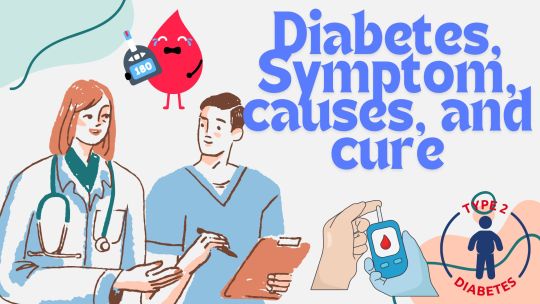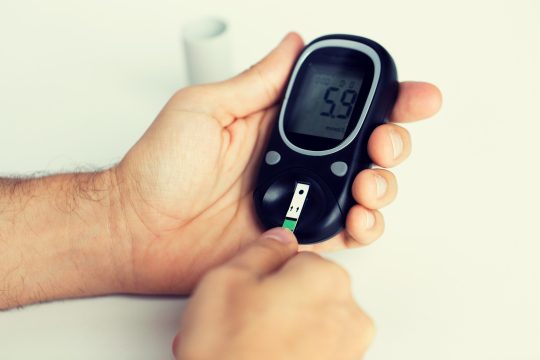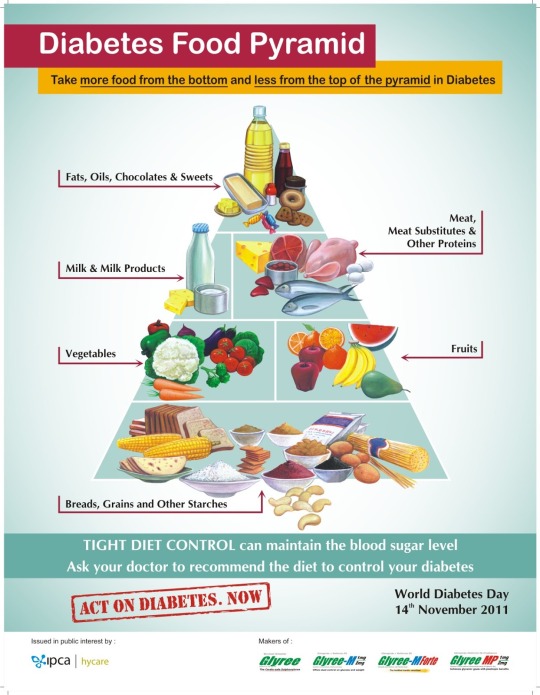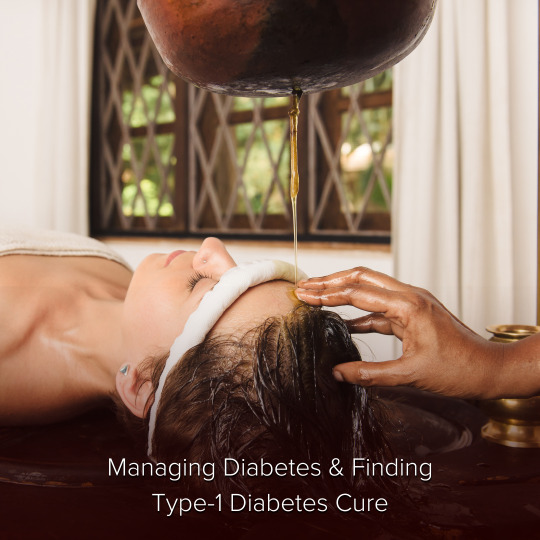#Diabetes cure
Explore tagged Tumblr posts
Text

is this the only way i can spread information
#big pharma#diabetes#type 2 diabetes#type 2 diabetic#diabetic#health#healthcare#pharmacy#diabetes cure#insulin#blood sugar#health and wellness#medicine#cure#news#important#please reblog#meme
6 notes
·
View notes
Text
The insulin news is a great way to check to see how many people look for more information and how many people just say things online
(The patient treated was Type 1, however it was a singular patient so it needs much more testing and peer review before it can be considered a cure, and I have no idea if the treatment required use of immunosuppressants, basically it’s ‘promising’)
People really shouldn’t get their medical news from headlines; lest anyone forgot, that’s how we got anti-vaxxers
#off topic#not fiber arts#medical news#diabetes#diabetes cure#why does everyone assume all the resources go to type 2 all the time?#it’s getting weird…
2 notes
·
View notes
Text
GLUCOTRUST- The perfect treatment for diabetes and weight loss
#type 2 diabetes#diabetes treatment#diabetes cure#diabetes#diabetic#health#lose weight#weight loss#i wanna lose weight#weight loss tips#healthy weight loss
5 notes
·
View notes
Text
youtube
A second country has cured diabetes
youtube
0 notes
Text
How to Prevent Diabetes Naturally?

Nowadays because of our daily life activities and the environment diabetes has become a very common disease. As per Diabetes Canada, more than 11.9 million people in Canada live with diabetes or prediabetes. How to prevent diabetes? That’s what we gonna know in this small article. With proper diabetes care, anyone can easily prevent diabetes. If you want a natural way Ayurveda’s natural approach to treating any kind of health condition can be very beneficial in this phenomenon. Let’s see how it helps in diabetes cure:
Natural Ways to Prevent Diabetes:
The power to prevent diabetes lies in your everyday habits. Here are five key strategies to embrace:
In Ayurveda’s natural treatment diet is crucial in maintaining overall health. As per ayurvedic treatment To avoid diabetes, consume a balanced diet that includes whole grains, bitter vegetables, fruits, herbs, and spices. It strongly focuses on avoiding processed foods.
Physical activity is a vital part of Ayurvedic health. Regular exercise can help you maintain a healthy weight and improve insulin sensitivity. Yoga and walking are especially recommended because of their holistic benefits. Specific yoga poses, such as Trikonasana (Triangle Pose) and Bhujangasana (Cobra Pose), can help stimulate pancreatic function.
Ayurveda recommends various herbs to prevent diabetes such as fenugreek, madhuant, safed musli, chandraprabha vati.
Ayurveda places a strong emphasis on lifestyle changes such as ensuring 7-8 hours of regular sleep, stress management and following a daily routine that helps in the balance of doshas.
Conclusion:
how to prevent diabetes naturally? Now you have a brief idea. It is very important to note that you now know how to prevent diabetes naturally without having to rely on external help. Integrating the following diabetes care measures into one’s lifestyle can help a lot in preventing this chronic disease.
0 notes
Text

Why your Morning fasting sugar level is high
While postprandial readings often come down to less than 140, morning blood sugar remains stubbornly high. Doctors call this the 'dawn phenomenon'. It is important to note that the dawn phenomenon is not restricted to diabetics. It happens to all of us.
To know more read the full blog here: https://www.freedomfromdiabetes.org/blog/post/why-your-morning-fasting-sugar-level-is-high/1509
#why my blood sugar is high in the morning#high sugar level#High Sugar level range#High sugar level symptoms#Diabetes#Diabetes reversal#diabetes treatment#Diabetes cure
0 notes
Text
What is diabetes, Symptom, causes, and cure?

I. Introduction A. Definition of Diabetes B. Significance of Understanding its Causes and Cure
II. Types of Diabetes A. Type 1 Diabetes 1. Autoimmune Process 2. Insulin Dependency B. Type 2 Diabetes 1. Insulin Resistance 2. Lifestyle Factors
III. Genetic Factors A. Familial Predisposition B. Genetic Mutations
IV. Environmental Influences A. Diet B. Sedentary Lifestyle C. Stress
V. Hormonal Factors A. Insulin Production B. Glucagon Regulation
VI. Immunological Factors A. Autoimmune Response B. Inflammatory Processes
VII. Cellular Dysfunction A. Mitochondrial Dysfunction B. Oxidative Stress
VIII. Microbiome and Gut Health A. Gut Microflora Composition B. Gut-Brain Axis
IX. Metabolic Syndrome A. Insulin Resistance B. Dyslipidemia
X. Pharmacological Treatments A. Insulin Therapy B. Oral Hypoglycemic Agents
XI. Lifestyle Interventions A. Diet Modification B. Exercise Regimens
XII. Stem Cell Therapy A. Regenerative Potential B. Clinical Applications
XIII. Immunotherapy A. Targeting Autoimmune Response B. Immune Modulation
XIV. Gene Therapy A. CRISPR Technology B. Genetic Engineering
XV. Conclusion A. Holistic Approach to Diabetes Management B. Future Directions in Research and Treatment
Diabetes, Causes, Cure
Introduction
Diabetes, a chronic metabolic disorder, affects millions worldwide. Understanding its causes and potential cures is paramount in addressing its increasing prevalence and the associated health complications.
Types of Diabetes
Type 1 Diabetes
Type 1 diabetes results from an autoimmune process where the body's immune system mistakenly attacks insulin-producing beta cells in the pancreas. This leads to insulin deficiency and dependence on external insulin sources for survival.
Type 2 Diabetes
Type 2 diabetes primarily stems from insulin resistance, where cells fail to respond effectively to insulin. Lifestyle factors such as obesity, physical inactivity, and poor dietary choices contribute significantly to its development.
Genetic Factors
Familial Predisposition
A family history of diabetes increases the risk of developing the condition due to shared genetic factors among relatives.
Genetic Mutations
Specific genetic mutations can predispose individuals to diabetes by affecting insulin production, glucose metabolism, or other related processes.
Environmental Influences
Diet

A diet high in refined sugars, saturated fats, and processed foods can contribute to insulin resistance and metabolic dysfunction, increasing the risk of diabetes.
Sedentary Lifestyle
Physical inactivity disrupts glucose metabolism and insulin sensitivity, promoting the onset and progression of diabetes.
Stress
Chronic stress triggers hormonal imbalances and inflammation, adversely affecting insulin function and contributing to diabetes development.
Hormonal Factors
Insulin Production
Disruption in insulin production by pancreatic beta cells or inadequate insulin secretion in response to glucose levels contributes to diabetes pathogenesis.
Glucagon Regulation
Imbalances in glucagon, a hormone that opposes insulin's actions, can disrupt blood glucose control and contribute to diabetes progression.
Immunological Factors
Autoimmune Response
In type 1 diabetes, an autoimmune reaction against beta cells destroys insulin-producing cells, leading to insulin deficiency and dependence on exogenous insulin.
Inflammatory Processes
Chronic inflammation plays a role in insulin resistance and beta cell dysfunction, contributing to the development and progression of diabetes.
Cellular Dysfunction
Mitochondrial Dysfunction
Impaired mitochondrial function within cells can disrupt energy metabolism and insulin signaling pathways, contributing to insulin resistance and diabetes.
Oxidative Stress
Increased oxidative stress damages cells and tissues, impairing insulin sensitivity and exacerbating diabetes-related complications.
Microbiome and Gut Health
Gut Microflora Composition
Alterations in gut microbiota composition can influence glucose metabolism and inflammation, impacting diabetes risk and progression.
Gut-Brain Axis
The bidirectional communication between the gut and the brain influences metabolic processes, including glucose regulation, and may play a role in diabetes development.
Metabolic Syndrome
Insulin Resistance
Insulin resistance is a hallmark of metabolic syndrome, characterized by impaired insulin action in target tissues, contributing to diabetes and cardiovascular disease risk.
Dyslipidemia
Abnormal lipid metabolism, including elevated triglycerides and decreased HDL cholesterol, is common in metabolic syndrome and exacerbates diabetes complications.
Pharmacological Treatments
Insulin Therapy
Insulin replacement therapy is essential for managing type 1 diabetes and may be necessary for type 2 diabetes patients with advanced disease or beta cell failure.
Oral Hypoglycemic Agents
Various oral medications target different aspects of glucose metabolism, including enhancing insulin sensitivity, stimulating insulin secretion, or inhibiting glucose production in the liver.
Lifestyle Interventions
Diet Modification
Adopting a balanced diet rich in whole grains, fruits, vegetables, and lean proteins can improve blood glucose control and reduce diabetes risk.
Exercise Regimens

Regular physical activity improves insulin sensitivity, promotes weight loss, and helps control blood sugar levels, making it a cornerstone of diabetes management.
Stem Cell Therapy
Regenerative Potential
Stem cell-based therapies hold promise for regenerating pancreatic beta cells and restoring normal insulin production in diabetes patients.
Clinical Applications
Ongoing research explores the use of stem cells in diabetes treatment, including transplantation approaches and cell-based therapies to replace damaged or dysfunctional cells.
Immunotherapy
Targeting Autoimmune Response
Immunotherapy aims to modulate the immune system to halt the autoimmune destruction of pancreatic beta cells in type 1 diabetes.
Immune Modulation
Various immunomodulatory strategies, such as antigen-specific tolerance induction and regulatory T cell therapy, show potential for preserving beta cell function and delaying disease progression.
Gene Therapy

CRISPR Technology
Advancements in gene editing technologies like CRISPR offer the possibility of correcting genetic mutations associated with diabetes and restoring normal cellular function.
Genetic Engineering
Gene therapy approaches aim to deliver functional genes or modify existing ones to enhance insulin production, improve glucose metabolism, and potentially cure diabetes.
Click here
Conclusion
A comprehensive understanding of the multifaceted causes of diabetes and the development of innovative treatments offer hope for effectively managing and ultimately curing this pervasive disease. Embracing a holistic approach that addresses genetic, environmental, hormonal, immunological, and metabolic factors is essential for improving diabetes outcomes and enhancing the quality of life for affected individuals. As research continues to uncover new insights and therapeutic strategies, the pursuit of a cure for diabetes remains a top priority, guiding the future of healthcare and ushering in a new era of personalized medicine.
Click here to get link
DISCLAIMER :- This article contains affiliate link, which may beneficial for me.
#health & fitness#diabetes#healthcare#insulin#type 2 diabetes#sugarcontrol#diabetes care#diabetes causes#diabetes products#diabetes symptoms#diabetes treatment#diabetes control#diabetes medicine#diabetes cure
0 notes
Text
Amiclear for Diabetes Solution - Best Blood Glucose Normalizing Formula.
Introducing The Amiclear, an innovative product designed to support effective diabetes management. With its proven track record and positive user testimonials, The Amiclear offers a promising solution for older adults seeking to stabilize their blood sugar levels. Watch a detailed video presentation of Amiclear using the link below:
www.elderstechemporium.com/recommends/amiclear-for-diabetes-video-presentation
0 notes
Text
Diabetes Management: The Art of Navigating Life with Diabetes
Living with diabetes can be an intricate and multifaceted journey, necessitating profound insights and comprehensive tools to forge a gratifying existence despite its challenges. In this informative discourse, we shall delve into the intricacies of diabetes medicine, exploring its dynamic management strategies and embracing transformative lifestyle alterations that can genuinely wield a…

View On WordPress
#A1C Test#Aerobic Exercises#Balanced Diet#blood sugar levels#Blood Sugar Monitoring#Blood Tests#carbohydrates#cardiovascular complications#causes of diabetes#children and diabetes#conclusion#Diabetes#Diabetes complications#diabetes cure#Diabetes Management#diabetes management tips#diabetes medicine#Diabetes Prevention#Diabetes symptoms#Diagnosing Diabetes#dietary recommendations#exercise for diabetes#eye problems#flexibility exercises#foot care#foot complications#genetic factors in diabetes#gestational diabetes#gestational diabetes explanation#glucose tolerance test
0 notes
Text
The types of diets for Diabetes
In this article, we will explore some of the most popular diets that are recommended for and followed by diabetic patients.
First, let us understand the meaning of diet.
The term diet usually refers to the consumption of nutritious food with a focus on either managing health or weight.
The diet for Diabetes
Diabetes is a disease linked to the regulation of blood glucose levels. So, it becomes crucial to consume a diet that does not cause an immediate spike in blood sugar or that does not override the blood glucose levels.
Hence, patients suffering from Diabetes, mainly focus on controlling their blood glucose levels and devise a diet regime knowing that it will directly influence the amount of insulin administered.
When composing a diet, factors to be kept in mind –
It is balanced and supplies the body with all essential nutrients.
It is sustainable and can be followed long-term
Is not a “crash diet” that puts the body in a state of rapid weight loss due to extreme deficiency in calories or nutrition
In order to structure our diet, let us know the minimum caloric requirements recommended by the Department of Health and Human ServicesPersonCalorie requirementsSedentary children: 2–8 years1,000–1,400Active children: 2–8 years1,000–2,000Females: 9–13 years1,400–2,200Males: 9–13 years1,600–2,600Active females: 14–30 years2,400Sedentary females: 14–30 years1,800–2,000Active males: 14–30 years2,800–3,200Sedentary males: 14–30 years2,000–2,600Active people: 30 years and over2,000–3,000Sedentary people: 30 years and over1,600–2,400
The 6 essential nutrients to incorporate in your diet include –
Proteins
Carbohydrates
Fats
Vitamins
Minerals
Water
Some of the most popular diets followed to manage diabetes are –
The low-carb diet
Keto-diet
Vegetarian diet
Whole-food plant-based diet
The low-carb diet
This is the most common diet followed by diabetic patients since a low-carb diet helps in keeping the blood glucose levels under control. Before insulin was discovered for the treatment of diabetes, people were kept on strict diet controls and recommended a low-carb diet to keep their blood glucose levels in check. However, consuming a diet that is deficient in carbohydrates may not be a replacement for insulin administration but it will surely decrease the dosage.
The Keto diet
In a ketogenic diet or a low-carb high-fat diet, nutritional ketone production is the goal through decreased carbohydrate or protein intake. A keto diet mainly consists of fats from plant or animal sources. A person following a keto-diet, essentially keeps himself supplemented only with dietary sources rich in fat. It is important to remember that although a keto diet is low in carbohydrates, it is not the same as a low-carb diet since fat-rich foods are a prerequisite to fall under the keto criteria.
A vegetarian diet
Vegetarian diets prevent insulin resistance and reduce the sharp rise in blood sugar through foods that release glucose slowly into the blood or foods that have a low glycemic index. Studies have shown that people following a vegetarian diet stand a 35-53% lower chance of developing type 2 diabetes. This diet not only helps in maintaining weight but also helps in improving heart, gut and brain health.
Whole food plant-based diet
This diet is particularly followed in the modern age where the benefits of a diet rich in fresh and natural nutrients are given importance. In a whole food plant-based diet, dairy and processed foods are eliminated with the consumption of only food that is obtained directly from nature with no preservatives or additives. The requirement of a whole food plant-based diet is that the food needs to be complete or whole in itself and not refined or processed.
The philosophy behind this diet is that food from nature is complete by itself with all the essential nutrients and man separated it into carbohydrates, proteins and fats while trying to again put together a balanced diet consisting of all essential nutrients. This diet is known to not only prevent lifestyle-related diseases like thyroid and diabetes but also known to reverse them.
know more about diabetes diet plan and how you can reverse your diabetes naturally
Conclusion

#diabetes#diabetes reversal#ayurveda#diabetes diet#diabetes diet plan#diet for diabetes#diet plan#diabetes cure#type 2 diabetes
0 notes
Text
Deep Sleep Diabetes Remedies
#diabetes treatment#diabetes care#diabetes cure#diabetes mellitus#type 2 diabetes#diabetic#diabetes#diabetes management#diabetes awareness
2 notes
·
View notes
Text
Is a Cure for Diabetes Possible? Exploring the Latest Research and Treatment Options
I. Introduction on Diabetes Cure Diabetes Cure is a chronic condition characterized by high levels of glucose (sugar) in the blood. The body requires insulin, a hormone produced by the pancreas, to convert glucose into energy. In people with diabetes, the body either doesn’t produce enough insulin or can’t use it properly, leading to a buildup of glucose in the blood. Define diabetes and the…

View On WordPress
0 notes
Text
I'm all for natural remedies and traditional medicine, but I think when your "natural remedy" is based on the idea that water can become medicinal by being in the presence of a teeny itty bit amount of something, then it's probably bullshit and you're getting scammed. Go buy some ibuprofen or see a doctor.
#this is a long way for me to say that homeopathy is a scam!!#and that ''homeopathic professionals'' deliberately prey on vulnerable and scared people#especially chronically and terminally ill women looking for help and answers to illnesses they don't understand#so then they end up paying absurd money for fucking PLACEBOS#literal bottles of water and sugar pills that can supposedly cure their diabetes or fibromyalgia or cancer#and it's fucking disgusting and shameful okay
8K notes
·
View notes
Text
Managing Diabetes and Finding Type-1 Diabetes Cure

Introduction
Living with type 1 diabetes can be challenging. Because of this autoimmune disease, the pancreas makes little to no insulin, which raises blood sugar levels. Are you looking for a Type 1 diabetes cure? It is difficult to get permanent relief from type 1 diabetes, but here we come with some therapies that can help control the illness enhance the lives of individuals who have it, and help you in your diabetes care journey.
Best Ayurveda for Type 1 Diabetes Cure
Type 1 diabetes is one of the many medical disorders that may be managed holistically by the ancient Indian medical system known as Ayurveda. Ayurveda helps you in your diabetes care, which includes diabetes therapy, herbal medications, dietary adjustments, and lifestyle changes, is among the most promising. Ayurvedic doctors frequently advise a customized strategy to treat diabetes's underlying causes and restore the body's equilibrium.
Herbal Products for Type 1 Diabetes Cure
Several herbal products are renowned in Ayurveda for their potential to assist in managing type 1 diabetes. These include Madhuant Tablets, formulated with natural ingredients like bitter gourd, neem, and giloy, known for their blood sugar-regulating properties; Safed Musli Powder, a medicinal herb recognized for its anti-diabetic properties that may improve insulin sensitivity; Gurmar Powder, also known as "sugar destroyer," traditionally used to lower blood sugar levels and reduce sugar cravings; Chandraprabha Vati Tablets, containing a blend of herbs like guggul, haritaki, and Amalaki, which may aid in managing diabetes by improving digestion and metabolism; and Trikatu Tablets, a combination of ginger, black pepper, and long pepper believed to enhance digestion, metabolism, and insulin sensitivity, thus supporting diabetes management.
Conclusion
Sevayucuba is the greatest place to find a type 1 diabetes cure. The diabetes care program is designed to manage diabetes through blood sugar monitoring, stress management, yoga and pranayama practices, herbal supplements, and dietary adjustments.
0 notes
Text

Why your Morning fasting sugar level is high
Despite normal readings of less than 140 points post meals and no dependence on tablets! If this sounds like you, read on to find out what causes this phenomenon and what you can do to address it.
Read more: https://www.freedomfromdiabetes.org/blog/post/why-your-morning-fasting-sugar-level-is-high/1509
#why my blood sugar is high in the morning#high sugar level#High Sugar level range#High sugar level symptoms#Diabetes#Diabetes reversal#diabetes treatment#Diabetes cure
0 notes
Text
Cure where there is no cure
It dawned on me like a revelation This morning, we reviewed some previous specialist referrals in my chart at the doctor’s office. We talked about arthritis (osteoarthritis). I remarked that I was told there is no cure for arthritis but only some help to cope with the ailment. She in turn responded that if there was a cure she would not be seeing the patients she is now seeing. I sheepishly…

View On WordPress
0 notes